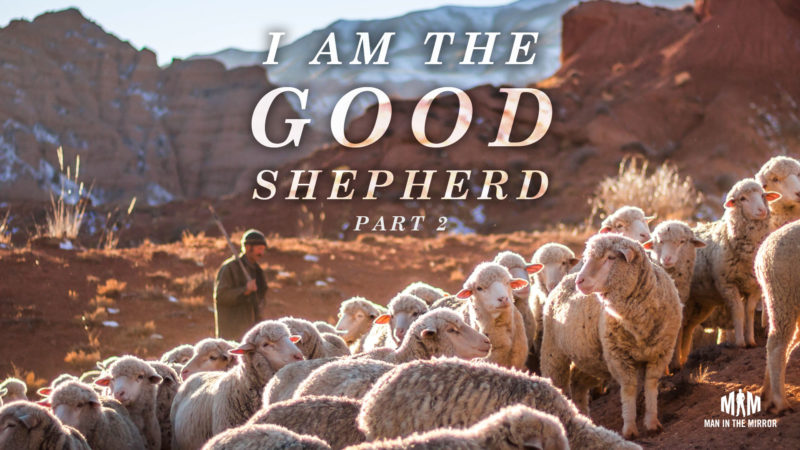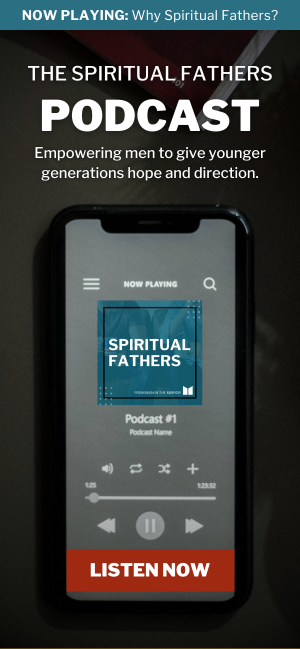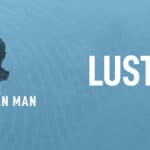I Am The Good Shepherd (Part 2)
Part 2 of 2
By Guest Writer Zach Van Dyke, Pastor at Summit Church
In last week’s post, we asked the question, “Can we ever really know how Jesus feels about us?” And we determined the answer is yes.
In John 10:11-15 (NIV), Jesus says:
“I am the good shepherd. The good shepherd lays down his life for the sheep. The hired hand is not the shepherd and does not own the sheep. So when he sees the wolf coming, he abandons the sheep and runs away. Then the wolf attacks the flock and scatters it. The man runs away because he is a hired hand and cares nothing for the sheep.
“I am the good shepherd; I know my sheep and my sheep know me—just as the Father knows me and I know the Father—and I lay down my life for the sheep.”
When Jesus says, “I am the good shepherd,” He gets very personal. He is telling us how specifically He knows us—truly knows us. And that He cares about us so deeply, with an understanding that we are prone to wander, that He pays a high price to protect us.
Protect us from what? From the wolf.
As pastors and men’s leaders, we may be sheep, but we are also called to be shepherds. And out of love for those in our flock, we must 1) be able to recognize wolves, and 2) be willing to protect the sheep.
Most of us now know the name Larry Nassar; he was the doctor for the US Olympic gymnastics team and at Michigan State University. He was sentenced to prison for sexually abusing more than 150 girls. Rachel Denhollander was the first victim to go public. When she addressed her abuser at the sentencing, she spoke extremely eloquently and powerfully, but one thing she said deeply troubled me.
She told him that speaking out against sexual abuse had cost her her church. “Three weeks before my police report I was left alone and isolated,” she said.
Think about that. “I am the good shepherd. The good shepherd lays down his life for the sheep. The hired hand is not the shepherd and does not own the sheep. So when he sees the wolf coming, he abandons the sheep and runs away. Then the wolf attacks the flock and scatters it. The man runs away because he is a hired hand and cares nothing for the sheep.”
A good shepherd doesn’t run away.
Later, in an interview, Rachel expounded on her statement about losing her church. She said this: “Church is one of the least safe places to acknowledge abuse because the way it is counseled is, more often than not, damaging to the victim.”
As leaders, this may be tough to hear, but it’s true. I know personally that it’s true. When I went to a church worker to share my own story of abuse as a teenager at the hands of a church volunteer, I was asked, “Did you kind of like it?”
Rachel then went on to say: “We were advocating for other victims of sexual assault within the evangelical community, crimes which had been perpetrated by people in the church and whose abuse had been enabled, very clearly, by prominent leaders in the evangelical community. That is not a message that evangelical leaders want to hear…”
Men, make a commitment that your church will not be that kind of church, and you will not be that kind of leader. And if this has taken place already, it needs to be confronted.
Ephesians 5:11 says, “Have nothing to do with the fruitless deeds of darkness, but rather expose them.”
God’s intent is for this to be exposed! The church should never be a safe haven for abusers to continue in their abuse but instead the safest place for the abused.
Our job as pastors and men’s leaders—as shepherds—is, once we see a wolf, to drive it away. We’re called to care for the sheep. Even at risk to ourselves.
I hate that our culture seems to be leading in this charge. When it comes to abuse, we as the church should always be the first to say, “Times up.”
If one of your men or women has been abused, the church should be a place they hear the message: “It’s not your fault. Don’t believe the lie. We want to hear you. We want to come alongside you. You are not alone. It’s not your fault. You are deeply loved and worthy.”
The truth is that we are all broken sexually. We have all sinned sexually in thought or deed. We are all sexual sinners. But when it comes to your abuse, you have nothing to repent of.
If you yourself have been the victim of abuse, let me repeat that. We are all sexual sinners, but when it comes to your abuse, you have nothing to repent of.
Think about this: 1 in 4 women experience sexual violence. 1 in 6 men do.
This means that if you shepherd a large congregation especially, it will be true that many there have been abused. What message are you sending to them?
And it will also be true that some there have been the abuser. What message are you sending to them? How about—
If you are an unrepentant abuser and you stay here, I’m praying that you are exposed. This isn’t a safe place for your “fruitless deeds of darkness.” If you have abused someone, turn yourself in.
We read in John 8:32, “the truth will set you free.” And it really will. But you cannot experience the grace and mercy of Jesus Christ in the midst of self-justification, blame-shifting, or minimizing your evil. What you have done is devastating. Your evil actions will affect your victims and their loved ones for the rest of their lives.
Only truth can set you free, and this truth was so profoundly and clearly spoken by Rachael Denhollander to her abuser that I’m going to quote her: “I pray you experience the soul-crushing weight of guilt so you may someday experience true repentance and true forgiveness from God, which you need far more than forgiveness from me—though I extend that to you as well.”
We minimize the cross when we look at the cross as only the place for grace and forgiveness to be given to sinners, because it’s also the place where we see the wrath of a holy God against sin and injustice and abuse.
THE BIG IDEA: The cross is where we see that God is always on the side of the abused but yet offers hope to the abuser.
At the cross, all of us can face any earthly consequences for our sin knowing that Jesus took the ultimate consequence for us. And it is the only place of real hope for both the abused and the abusers.
When Jesus Christ says, “I am the Good Shepherd,” He’s saying, “I love my sheep so much that when the wolves come, I will become a lamb myself. I will lose my life in place of theirs.” There has never been a stronger affirmation of any person’s value or dignity than to see Jesus look into our hearts, all the way to the deep, dark bottom and say, “You’re worth it to me. You’re worth dying for. I am the Good Shepherd.”
This should impact every move we make as shepherds.
You’ve heard the phrase, “Boys will be boys.” It’s often used by our culture to excuse bad behavior, and it assumes a low bar has been established and accepted. I reject that.
As men, we were designed in His image with a purpose to sacrifice and stand up for others. If Jesus had had a phrase about expectations and assumptions for us, it might instead be, “Men will be men, laying down their reputations and their comforts and their desires—even their lives—for the sake of others.”
May we strive to live this out in our churches and in our lives. Out of love for and from the Good Shepherd, let’s be good shepherds, in Jesus’ name.
♦♦♦








